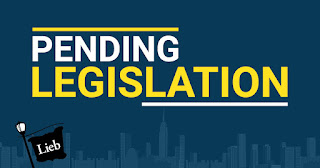In an effort to improve neighborhood preservation and community renewal, New York will expand their current definition of preservation and renewal to include the administration of landlord training classes. The amended bill covers all municipalities and aims to provide assistance primarily to underserved neighborhoods. Landlords are not required to participate in these classes so they will not be penalized if they choose not to do so.
The amended bill, A05393, which is awaiting Gov. Hochul's signature, will administer landlord training classes in the definitions of neighborhood preservation activities and community renewal activities. These classes will cover information ranging from building codes to evictions. Preservation and community renewal activities include, but are not limited to, repairs, renovations, and restorations. Ultimately, the goal of the Bill is to preserve underserved neighborhoods and to protect tenants from being unnecessarily bothered and illegally evicted by landlords.
Landlords are having new laws thrown at them on a regular basis in light of the COVID pandemic. And if you're not tuned in, updates on regulations and new laws can be easily missed or misunderstood. These classes will afford landlords the opportunity to know what's going on in their industry. This Bill could also help landlords reduce legal fees by getting it right the first time around.
Details have not yet been released regarding where the classes will take place, in what form - virtual or in-person, how often, and how New York will monitor whether or not a landlord has actually completed the training classes. If all goes according to plan, this Bill will be helpful to both landlords and tenants alike. The classes in theory sound like they will be an extremely useful tool for landlords. But, if a landlord is not required to attend the classes, will they actually go to them?

















